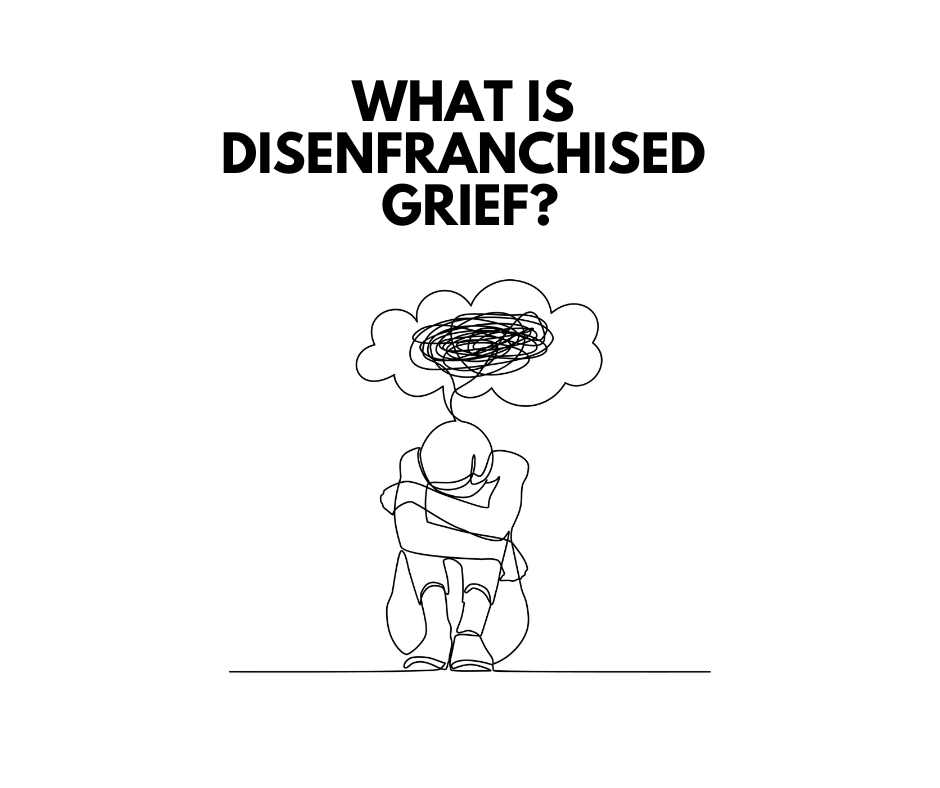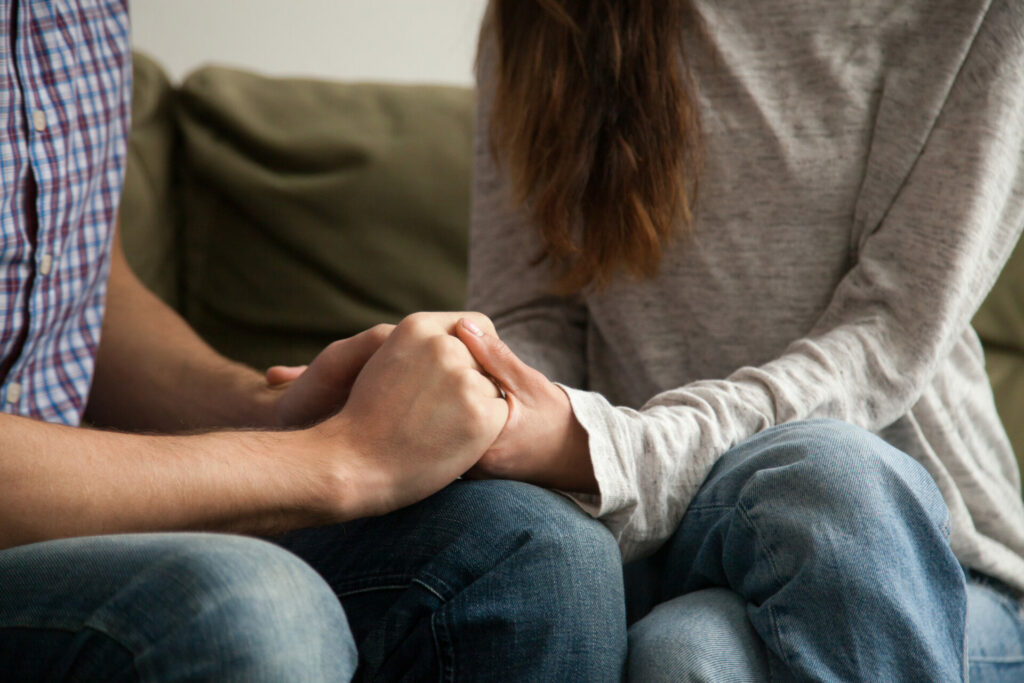“Aren’t you over it by now?” If you’ve heard some version of this question, you may be dealing with disenfranchised grief. “Be strong and move forward.” If this is the kind of advice folks are aiming at you, your version of grief might not match what society is expecting of you.
Whether it is family traditions or pop culture portrayals, we are each conditioned or at least encouraged to grieve in a “normal” way. When you break away from the script, you may find that even loved ones are less supportive. They seem to wonder why you can’t just go through the five stages of grief like everyone else.
What is Disenfranchised Grief?
Basically, unless you follow the accepted mourning template, you run the risk of experiencing disenfranchised grief. You’ll get less sympathy and thus, start questioning your own perceptions. You didn’t process and move on quickly enough. Perhaps you took “too much time” off from your job.
The specifics vary, of course. What is consistent is this feeling of “other.” Just when you need support more than ever, you are being judged for deviating from the cultural blueprint.
What Are the Symptoms of Disenfranchised Grief?
Needless to say, each case is different. Still, some general examples of symptoms can be identified, e.g.
- Living in a state of numbness and loneliness
- Being distracted by constant thoughts of the deceased and all surrounding details
- Conversely, you may instead go out of your way to avoid any such reminders
- Feeling lost and unsure about life even more than six months after the loss
As you may have noticed, disenfranchised grief has some similarities to complicated grief.
What Causes Disenfranchised Grief?
Yet again, we can point to generalities. Each person reacts to and processes loss differently. However, the following factors can contribute to confusion from the people around you who are limited to their expectations.
Not Crying, etc.
What I mean is that not everything openly weeps and displays palpable sorrow. There is no right way to grieve but there certainly are ways that are deemed “normal.”
Uncommon Source
If you mourn a parent, partner, or child, such grief seems natural. But who says you can’t feel as much emotion for someone who is not a blood relation? For that matter, who says you can’t grieve losses other than deaths?
Death Has (allegedly) Been Normalized
Certain jobs — from first responders to ER doctors and beyond — encounter death more often than others. For some odd reason, society thinks this should make you less susceptible to grief.
It Makes Others Uncomfortable
Let’s say your loved one died of a drug overdose or maybe your partner had a miscarriage. We each suffer many kinds of losses. They could involve job loss, relocation, or divorce. We grieve when a loved one becomes ill or disabled.
In the world we live in, people seem far less willing to talk openly about these kinds of losses. As a result, the mourners are left to fend for themselves.
How Can You Manage Disenfranchised Grief?
- Let others know how you’re feeling. Open up to trusted friends and family members and ask for support.
- Do some research on how mourning takes place in other cultures. Take solace in reminding yourself that there’s more than one way to do things.
- Keep a journal. Track your emotions and milestones.
- Find support groups. Whether online or in-person, find comfort with others who understand your struggle.
- Perhaps most importantly, create your own grief rituals.
Therapy can provide you with a much-needed safe space. Each time you meet with your counselor, it can serve as a workshop of sorts. Together, you can work through the maze of personal feelings and societal norms. Contact us to explore how therapy can help your unique situation.




